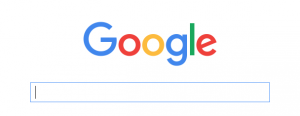
Runny nose, fever, itchy throat… Just type in your symptoms into Google and get a diagnosis. Some people are criticizing Google for trying to play doctor, however Google only means well.
We live in a day and age where everything is literally at our fingertips. We can search Google or any other search engine and get an answer to our questions within seconds. People have been searching their symptoms online on site such as Web MD and other online resources and they will continue to do so in the future. In my opinion, as long as Google is simply providing information and not pushing products like a specific pill made by the pharmaceutical industry, there is no harm done.
Google provides patients with an additional resource and in some cases, an online community. In my opinion, these platforms give users and patients more agency over their care. What if your doctor is not versed in the newest technology or treatment plans available for your diagnosis? What if you are not able to afford to get a second opinion? Google is simply giving you the tools and the questions to ask your physician moving forward.
This is especially true for people suffering from uncommon or uncurable diseases and disorders. I know someone who suffers from a mild form of hidradenitis suppurativa – a recurring skin condition with no cure and a treatment plan that only treats the symptoms after they have already occurred. After numerous unsuccessful doctor and dermatologist visits, this person has found solace in the online medical community. They have provided a way for them to find different alternatives to treat the condition through trial and error of what has worked for other people. It has also provided them with certain medications or treatment options to ask their doctors about – many of these are things that would not have been previously recommended.
The Dr. Google article reminded me of a story that I heard about one of my favorite HGTV hosts. The host, Tarek was diagnosed with Thyroid cancer after receiving and tip from a viewer asking him to get a biopsy done on his neck. (http://news.health.com/2015/11/23/tarek-el-moussa-thyroid-cancer-battle-remission/) This viewer’s actions may have very well saved his life.
While there are some negatives to Google and heath/medical treatments, I think that as long as Google commits to not promote certain products or miracle treatments and simply offers information and always recommends that users confer with a medical professional, there is no harm done.














